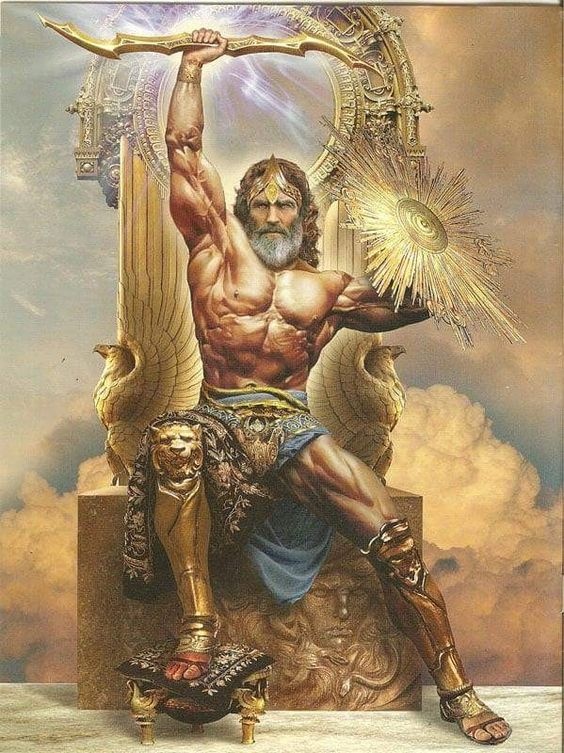The Mightiest Lord: An Exploration of Supreme Power and Influence

Introduction: In the vast tapestry of mythology and folklore, numerous tales have depicted characters of immense power and influence. Among them, one figure stands out as the epitome of might and authority—the Mightiest Lord. Throughout history, this awe-inspiring being has transcended cultures and religions, captivating the imaginations of people across the globe. In this article, we embark on a journey to unravel the essence of the Mightiest Lord, exploring their characteristics, significance, and enduring impact.
I. Origins and Archetypes:
- Divine Lineage:
- The Mightiest Lord often emerges from divine bloodlines, tracing their ancestry back to gods or demigods.
- Examples include Zeus from Greek mythology, Odin from Norse mythology, and Vishnu from Hindu mythology.
- Embodiment of Power:
- The Mightiest Lord embodies extraordinary strength, surpassing all other beings in their respective pantheons.
- They possess unparalleled abilities such as control over the elements, manipulation of reality, and the ability to shape destinies.
- Introduction: In the realm of mythology and folklore, the concept of a “Mightiest Lord” often surfaces, representing an entity of immense power and influence. These figures, worshipped and revered by their followers, embody strength, wisdom, and often govern over various aspects of existence. In this article, we embark on a journey to explore the concept of the Mightiest Lord, delving into different mythologies and legends from around the world.I. The Pantheon of Gods:
- Ancient Greek Mythology:
- Zeus: The King of the Olympian gods, Zeus wields thunderbolts and oversees the domains of sky and thunder.
- Poseidon: The Lord of the Sea, Poseidon commands the ocean and controls earthquakes.
- Hades: Ruler of the Underworld, Hades governs the realm of the dead.
- Norse Mythology:
- Odin: The Allfather, Odin presides over Asgard, bestowing wisdom upon mortals and commanding the Norse pantheon.
- Thor: God of Thunder, Thor wields his mighty hammer, Mjolnir, and protects the realm of humans.
- Hindu Mythology:
- Lord Vishnu: The Preserver of the Universe, Vishnu incarnates to restore cosmic balance and protect righteousness.
- Lord Shiva: The Destroyer and Transformer, Shiva governs destruction, creation, and the cycles of life.
II. Mythological Titans:
- Greek Mythology:
- Kronos: Father of Zeus, Kronos ruled the Titans and was known for his immense power and role in Greek creation myths.
- Atlas: Condemned to bear the heavens on his shoulders, Atlas symbolizes the strength and endurance of the Titans.
- Hindu Mythology:
- Mahadeva: Also known as Mahakala or the Great Time, Mahadeva embodies the eternal aspect of time and represents the ultimate force of destruction.
III. Cultural Depictions:
- Egyptian Mythology:
- Ra: The Sun God, Ra is considered the mightiest deity, illuminating the world with his solar disc and giving life to all.
- Japanese Mythology:
- Amaterasu: The Sun Goddess, Amaterasu shines radiantly, bringing light and prosperity to Japan, and is revered as a powerful deity.
IV. Modern Interpretations:
- Popular Culture:
- Superman: Known as the Man of Steel, Superman possesses incredible strength, speed, and invulnerability, making him one of the mightiest superheroes in comic book history.
- Fantasy Literature:
- Sauron: The Dark Lord from J.R.R. Tolkien’s “The Lord of the Rings,” Sauron embodies malevolence and wields the One Ring, exerting immense power and influence.
Conclusion: Throughout the ages, the concept of the Mightiest Lord has captivated human imagination. From ancient mythologies to modern interpretations, these powerful beings symbolize strength, control over domains, and sometimes embody the eternal forces of creation and destruction. Whether rooted in ancient legends or springing from the pages of contemporary works, the Mightiest Lord remains an enduring archetype that resonates with humanity’s fascination with power and transcendence.
- Ancient Greek Mythology:
II. Dominance and Rule:
- Leadership and Governance:
- The Mightiest Lord frequently assumes a position of leadership, governing over realms, worlds, or entire universes.
- They establish order, dispense justice, and protect their domains from threats both internal and external.
- Divine Wars and Quests:
- The Mightiest Lord often engages in epic battles and quests, showcasing their prowess and determination.
- These conflicts and adventures become the stuff of legends, inspiring mortals and deities alike.
III. Symbolism and Significance:
- Archetypal Representation:
- The Mightiest Lord symbolizes the human desire for power, control, and the quest for ultimate truth.
- They embody the struggle between light and darkness, order and chaos, and the eternal cycle of creation and destruction.
- Moral Teachings and Lessons:
- The stories surrounding the Mightiest Lord often carry profound moral lessons, illustrating the consequences of hubris, the importance of humility, and the complexities of leadership.
- They inspire individuals to confront challenges, overcome adversity, and embrace their own inner strength.
IV. Contemporary Adaptations:
- Literary and Pop Culture Impact:
- The legacy of the Mightiest Lord has permeated modern literature, films, and video games, captivating audiences worldwide.
- Examples include Marvel’s Thor, J.R.R. Tolkien’s Gandalf, and Kratos from the “God of War” video game series.
- Personal Interpretations:
- The concept of the Mightiest Lord invites personal interpretations and connections, as individuals find resonance in their struggles and aspirations.
- People often find solace and inspiration in these powerful figures, drawing strength from their mythical presence.
Conclusion: Throughout the annals of human history, the Mightiest Lord has reigned supreme as an embodiment of power, authority, and enduring influence. Across cultures and civilizations, this archetypal figure has captivated our collective imagination, inspiring tales of heroism, governance, and moral lessons. As we explore the stories and symbolism surrounding the Mightiest Lord, we discover not only the depths of their power but also the timeless truths they reveal about our own human nature and quest for significance in the face of an overwhelming universe.




